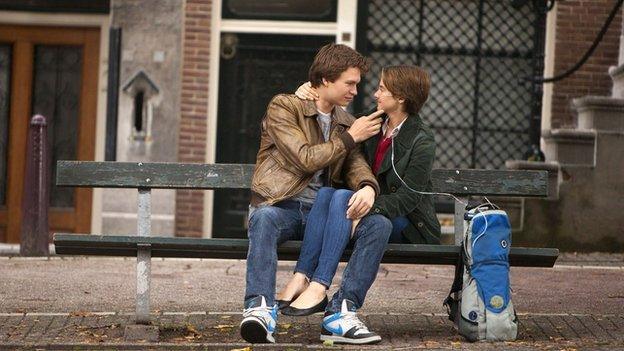Book awards: Is it children's books' turn to shine?
- Published
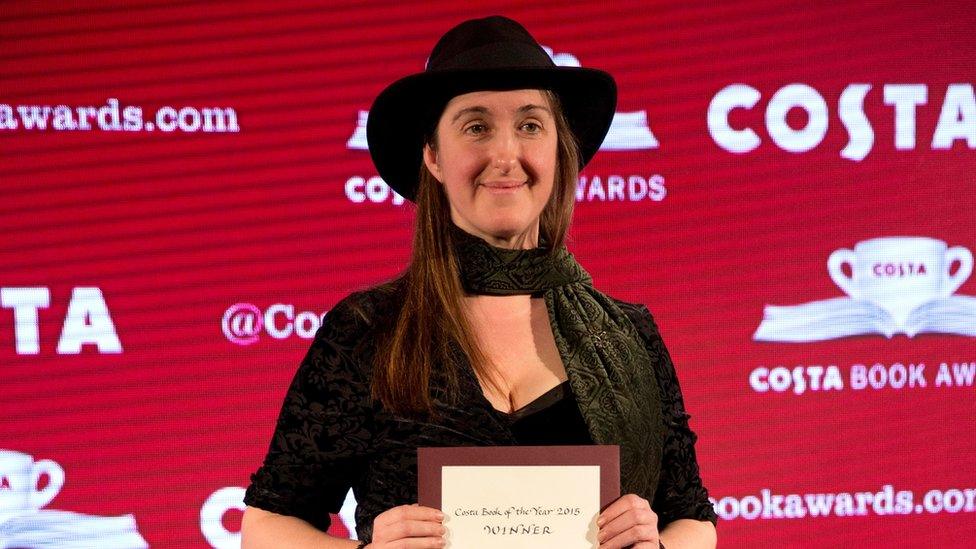
Anyone who saw Frances Hardinge's shocked face after her children's book The Lie Tree won the Costa Book of the Year prize On Wednesday night would know she was not expecting the accolade.
It was only the second time in the award's history that a children's book had won - and it was over a decade since Philip Pullman scooped the prize for The Amber Spyglass.
But change could be afoot as, only last month, The Fox and the Star - an illustrated fable about a fox and his friend - beat the competition to be named Waterstones Book of the Year.
Hardinge, delivering the winner's speech she had not thought she needed to prepare, urged more people to explore the "beautiful jungle" of children's and young adult (YA) fiction, whatever their age.
Has the genre finally stepped out of the shadows to stand side-by-side with adult fiction?
We asked authors and industry experts for their views:
Frances Hardinge, author of The Lie Tree
I think there has been a general sea change - and we're definitely seeing it now, a move away from considering children's literature to be a little bit more lightweight.
I'd have been happy to see the Costa Book of the Year go to any children's book - but I'm very happy it's mine.
The cross-over market is now much more established than it was. Many adults feel less self-conscious to be seen reading, enjoying and appreciating it.
There has been interesting and complex children's and young adult fiction for quite some time, but in terms of the consumer landscape and people's attitudes, I think Harry Potter had a lot to do with it.
There has been a tendency to make assumptions about the books, to deem them as simplistic. But now, people are seeing their complexity.
The idea of the 'beautiful jungle' sprung to mind because it's a place of excitement, danger, beauty - and the unexpected.
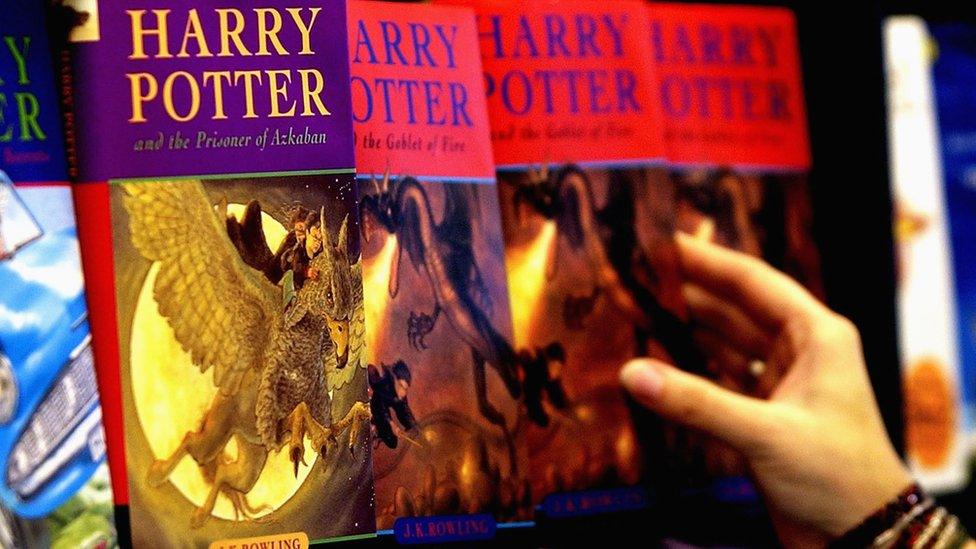
Hardinge said JK Rowling's Harry Potter series helped children's and YA fiction become popular with adults too
Belinda Rasmussen, publisher at Macmillan Children's Books, which publishes Frances Hardinge
We have published seven books by her and to now get properly recognised in this way, because Costa is one of the largest awards, feels amazing.
I think Frances does share some things with Philip Pullman, in that what she writes appeals to children and appeals to adults.
They are adult books, but the main character happens to be a child of 14. You get adults and children picking up the books.
I hope that Frances will reach a much broader audience.
Children's books do tend to get less mainstream coverage than adult books, so when something like this happens, it's incredibly important.
We really need to help parents, teachers and children themselves to have access to quality literature and find out about it. So anything that engages them, inspires them and gets them to read is really important.
Charlotte Eyre, children's editor at Bookseller magazine
The wider world is realising what people within children's publishing have known for a while - which is that the quality and output is getting better, year on year.
I don't think we're necessarily going to see children's and young adult books winning more adult book prizes, but in terms of people recognising the quality of children's literature, that will happen more often and people will pay more attention to children and young adult book prizes - there are so many of them.
As CS Lewis said, 'A children's story that can only be enjoyed by children is not a good children's story in the slightest' - and I think that's definitely the case.
For far too long, people have had this idea in their heads that children's and teenagers' literature was somehow inferior.
But the children's market has grown more quickly than the adult book market and hasn't been affected by the digital drive.
Hopefully, we will see more and more people recognising the quality of a really great children's book.
YA fiction has been dismissed as 'issue lit', but The Lie Tree shows it can be incredibly varied and very diverse.

Coralie Bickford-Smith believes 'a story is a story'
Melissa Cox, head of books at Waterstones and a judge for the Costa Children's Book Award
It can be very difficult for children's books to go up against adult books, but The Lie Tree has a wider appeal beyond younger readers.
In the UK in particular, we have such a rich heritage of children's books, going all the way back to Alice in Wonderland - there is such a rich seam, and some of the very best books are actually for children.
Now, in terms of writing and production, children's publishers have really stepped up to the plate.
The Fox and the Star was about the quality and the beautiful design, while the Lie Tree is really about the storytelling and richness.
But I honestly don't know if I think it's going to be less rare for them to win such awards.
I have definitely noticed within the industry there's a lot more respect for children's publishing and children's book selling as a crucial part of the market.
Children's books are selling so well, that people have been paying more attention."
Coralie Bickford-Smith, author and illustrator of The Fox and the Star
I feel that a story is a story, regardless of age, and this is something that has been recognised this year by the Costa awards, which is fantastic.
I don't think it's the case it makes the genre more credible, it's just that other parts of the book publishing industry are realising that there is an inventiveness, enjoyment and profundity in these books which appeals to readers.
The books have to stand up to being read many times, and have layers of meaning, and it's something that the industry now realises.
There was such a big gap between the last children's book winning Costa book of the year and now, so we can only hope there will now be more. And to have two awards for children in a short space of time is great."
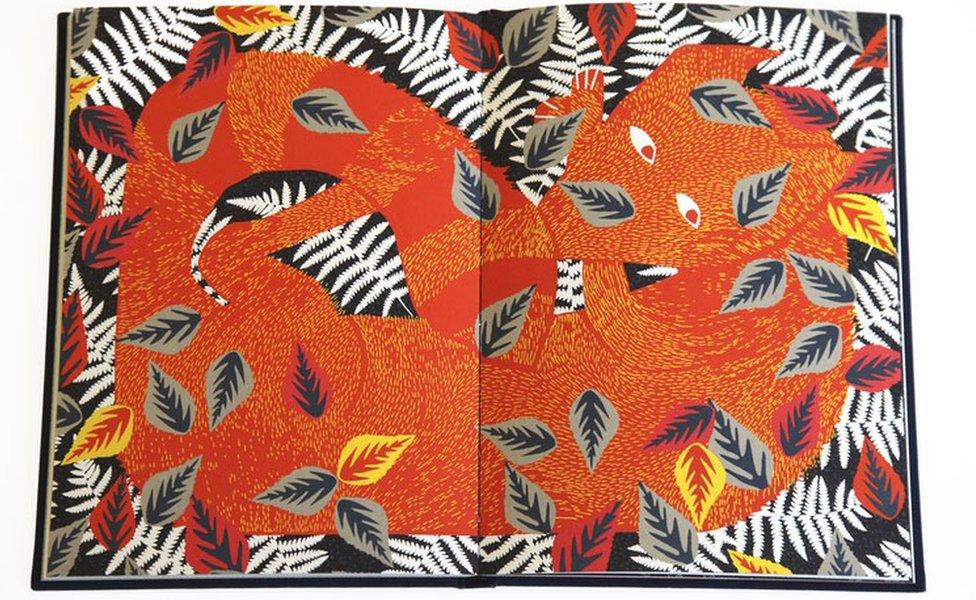
The Fox and the Star was named Waterstones Book of the Year 2015
Martyn Bedford, author and member of the Costa Book of the Year final judging panel
I think Frances' prize is such a brilliant thing for young adult fiction.
For me, YA has been the biggest success story of the publishing industry over the past 25 years.
Publishers were aware because of the sales figures, and young readers were aware, but it never got the critical attention it merited.
This [Costa award] has forced people to sit up and take notice of how great this fiction is.
There's been a traditional view in certain quarters that writing for children or teenagers is easier than writing for adults. Having done both, I can say it isn't.
There can also be a view it isn't 'proper' literature, but anyone who reads it would be surprised at just how good the books are - they aren't inferior in literary terms. But it takes a long time for these attitudes to disappear. I hope if enough of these books come to the public's attention, it will gradually erode this misconceived ideas.
It could be another 15 years before another children's book wins the Costa award - but it's a step in the right direction and will lead to more awareness.
- Published26 January 2016
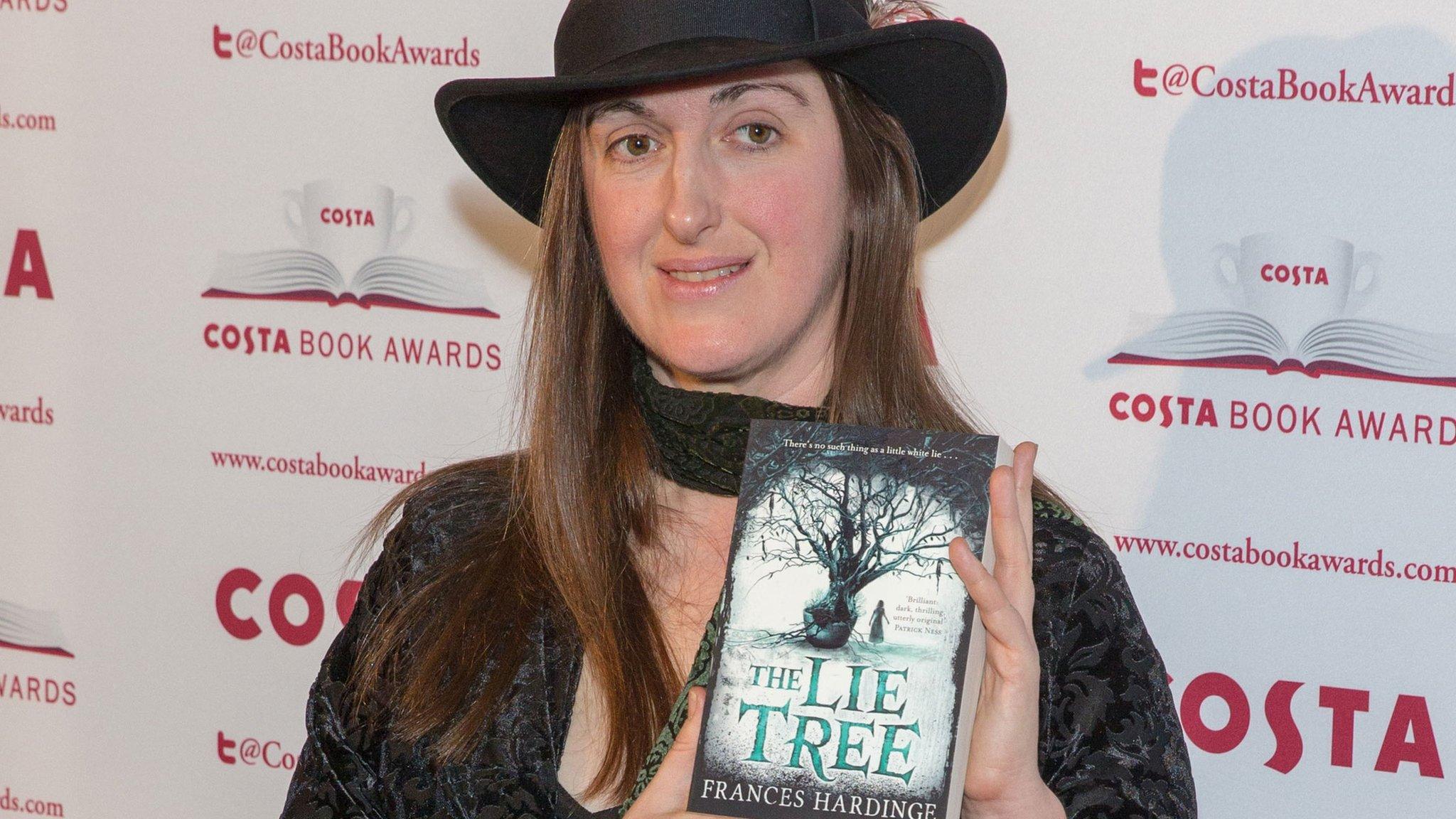
- Published1 December 2015
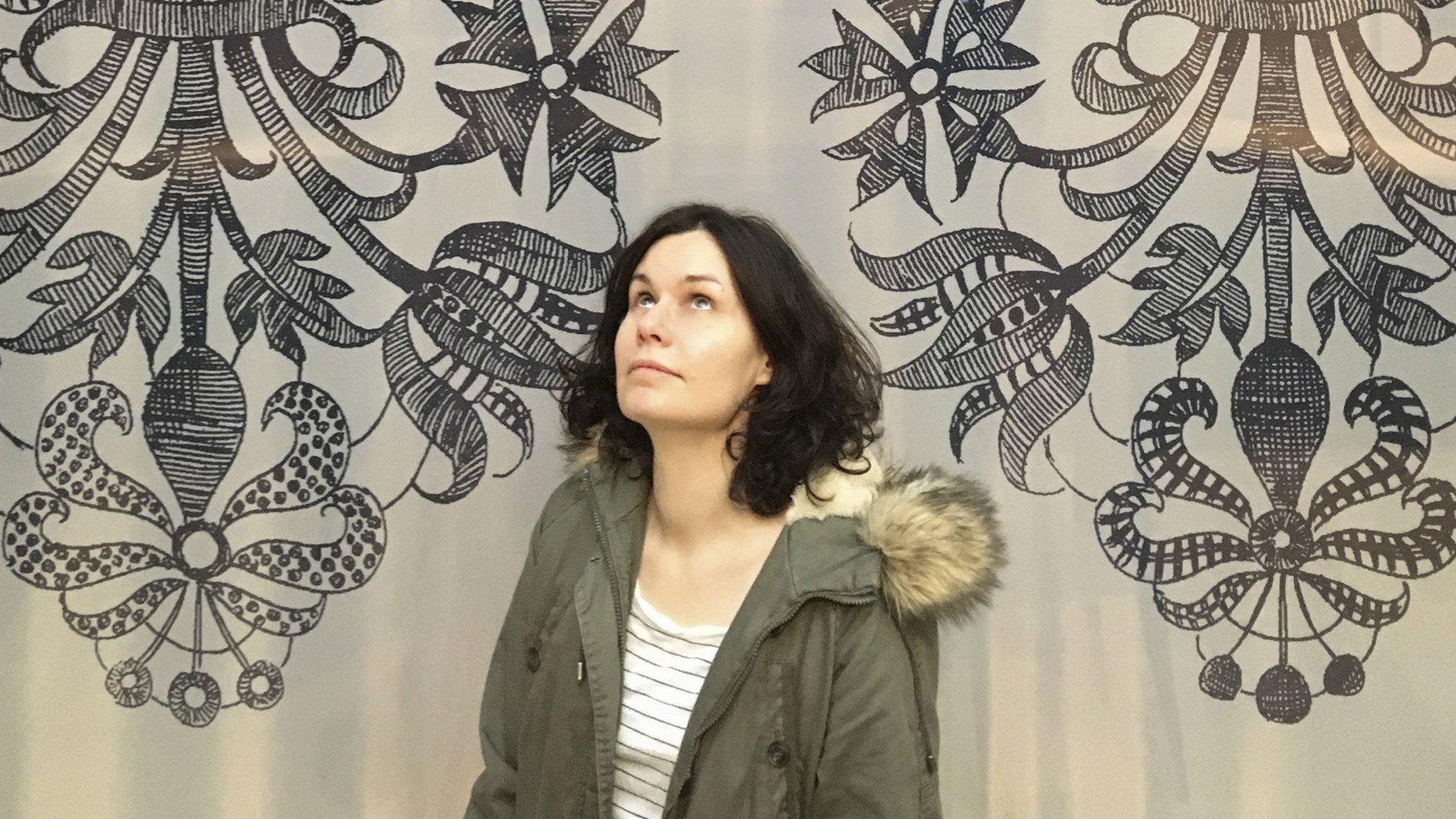
- Published27 December 2014
